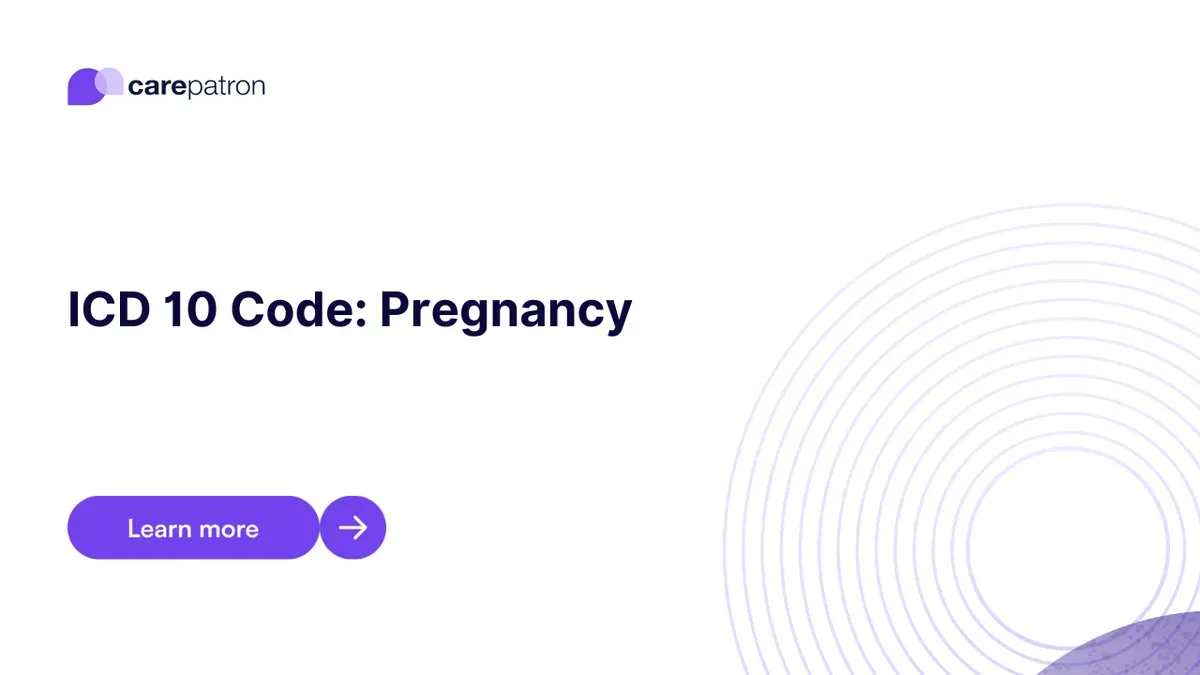
Pregnancy ICD-10-CM Codes
An insightful guide to ICD-10-CM codes pertinent to diagnosing and documenting various pregnancy conditions in 2023.
Use Code
Commonly asked questions
ICD-10-CM codes related to pregnancy should be used in medical documentation when diagnosing, treating, or billing for pregnancy-related conditions or situations. These codes accurately represent the pregnancy's stage and any complications.
Treatments during pregnancy can vary based on the condition diagnosed. Common interventions include dietary changes, medications, bed rest, and frequent monitoring. Specialized prenatal care or early hospital delivery might be required in some high-risk situations.
A diagnosis code for pregnancy provides a standardized way to represent the specific condition or situation related to a pregnancy. It's crucial for clinical management, medical research, and administrative tasks like billing.
EHR and practice management software
Get started for free
*No credit card required
Free
$0/usd
Unlimited clients
Telehealth
1GB of storage
Client portal text
Automated billing and online payments
